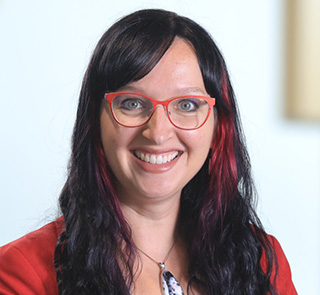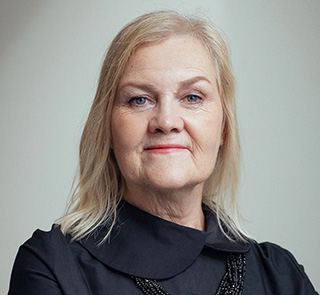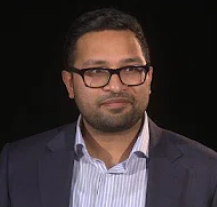Member Spotlight
Aasin Mehmud, Director
Structured Finance at Caterpillar Financial
Whether you are seeking to build industry knowledge, enhance your professional profile or raise your company’s visibility, belonging to CIM’s dynamic and influential community provides a wealth of benefits
Become a MemberFor accomplishments in scientific, technical, management or educational activities related to the minerals industry
IMPORTANT CHANGES
Please note that the winners of this award will be recognized on screen during the CIM-Caterpillar Awards Gala.
Beginning in 2021, the Awards Committee undertook a comprehensive review of the Distinguished Lecturer Award including a focus on the Quality of the Award. Please note the *NEW* nomination requirements below:
CIM Distinguished Lecturers are chosen from the CIM membership on the basis of their accomplishments in scientific, technical, management or educational activities related to the minerals industry, and invited to speak at CIM Branch and Student Chapter meetings across the country.
The CIM Distinguished Lecturers Award criteria and other information:
Recipients
This award is solely for individual nominations (no teams). There will be one lecture per Distinguished Lecturer.

2025
Nadia Mykytczuk
Nadia Mykytczuk is the president and CEO of MIRARCO (Mining Innovation, Rehabilitation and Applied Research Corporation), and serves as executive director of the Goodman School of Mines at Laurentian University. She brings over two decades of experience in environmental microbiology with a focus on mining systems, microbial ecology, and the development and application of biomining and bioremediation technologies.
Her research program is centered on microbial approaches to mine waste valorization, critical mineral recovery, and site remediation. She has extensive expertise in bioleaching, cold-adapted microorganisms, and applied geomicrobiology, with a strong track record of translating fundamental research into scalable, pilot-ready technologies for the mining industry.
Nadia currently holds the NOHFC Industrial Research Chair in Biomining and Bioremediation, leading a multidisciplinary team developing microbial solutions to legacy and emerging challenges in mine waste management. Since 2012, she has trained over 80 highly qualified personnel (HQP) across disciplines including biology, geology, biochemistry, and engineering, with an emphasis on applied, industry-relevant research training.

2025
Lesley Warren
Lesley Warren is an internationally recognized, innovative researcher delivering new water management and treatment technologies for the mining sector through novel discoveries of the mining microbiome. She moved to the University of Toronto to (UofT) take up the Claudette Mackay Lassonde Chair in Mineral Engineering in 2016 in the department of civil and mineral engineering, and became the first female director for the Lassonde Institute of Mining in 2018. She founded the Mining Futures Initiative at UofT in 2023. She has established a pioneering, multidisciplinary research program investigating the roles of bacteria in key processes affecting mining and resource sector waste environments that pave the way for smart, nature-based technologies to improve environmental outcomes.
Member Spotlight
Aasin Mehmud, Director
Structured Finance at Caterpillar Financial

CIM has kept me connected with my mining family. People is the most important part of Caterpillar’s business, so getting our customers solutions is our goal. CIM is that bridge to our relationships with our customers and our friends and family in the industry.
